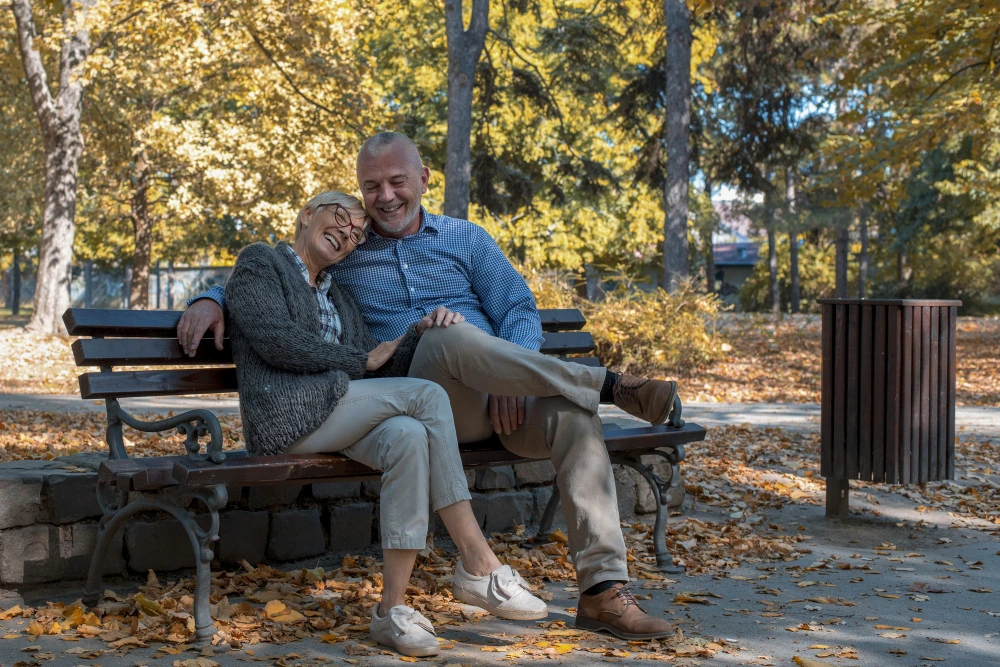Date:
September 15, 2025
Author:
Anastasia Fainberg
/
Founder & Managing Partner
Most people in Colorado know they should plan ahead, but many put off estate planning because it feels overwhelming, confusing, or unnecessary. It’s easy to think, “I’ll do it later” or “I don’t have enough assets to worry about.” Unfortunately, delaying estate planning doesn’t make the issue disappear—it makes it worse. When you pass away without a plan, your family is left with legal hurdles, financial delays, and emotional turmoil at the very moment they need stability and peace of mind the most.
This comprehensive guide will break down exactly what happens when you don’t plan, why a will isn’t always enough, and how a properly set up trust can protect your loved ones. If you’re searching for reliable information about estate planning in Colorado, this article will show you the critical differences between no plan, a will, and a trust—and why the right plan makes all the difference.
What Happens If You Die Without a Plan in Colorado?
When you die without a will or trust, it’s called dying intestate. That means the state decides who inherits your property according to Colorado law—not necessarily who you would have chosen. Even worse, the process often leaves your family in probate court for months or even years. During that time, your loved ones may face unnecessary stress, uncertainty, and costs that could have easily been avoided.
Here’s what that looks like:
- The court chooses guardians for your minor children, which may or may not align with your wishes.
- Your assets remain frozen until probate is complete, leaving your family unable to access money they need for daily expenses.
- Creditors may come forward to claim a share of your estate before your family receives anything.
- Family members may fight over who gets what, creating rifts and legal disputes that could last for years.
Case Study 1: Rosa (No Plan)
Rosa, a single mom in Denver, tragically passes away without a will or trust. Her sister steps in to care for Rosa’s two kids, but the court won’t let her assume guardianship without a legal process. Meanwhile, Rosa’s bank accounts are locked until probate is finished. What should have been a straightforward transition becomes a stressful, expensive ordeal that adds unnecessary pain during a time of grief.
Pro Tip: To understand how wills work in Colorado, visit Denver Will Attorney.
Why a Will Alone Isn’t Enough
A will is better than nothing—it allows you to name beneficiaries and appoint guardians for children. But here’s the catch: a will does not avoid probate. In Colorado, even with a will, your family must still go through the court process. This means that while a will helps clarify your wishes, it does not spare your family the time, money, and public exposure of probate.
Probate with a will means:
- Court involvement at every step.
- Legal fees and court costs that reduce the value of your estate.
- Public records—anyone can see what your family inherited.
- Delays that tie up money and property for months or even years.
Case Study 2: Brian (Will Only)
Brian, a retiree, created a will 30 years ago and never updated it. When he passes away, his wife assumes everything transfers smoothly. Instead, probate court delays access to her accounts, and outdated documents cause confusion about who should inherit certain assets. What Brian thought was “planning ahead” actually left his family exposed to financial stress, conflict, and months of unnecessary delay.
Learn more about the difference between wills and trusts at Wills and Trust Attorney Denver.
The Power of a Trust in Colorado Estate Planning
A revocable living trust is one of the most effective tools for estate planning in Colorado. Unlike a will, a trust avoids probate entirely, ensuring that your family experiences a seamless transfer of assets with minimal hassle.
Here’s how it works:
- You set up the trust during your lifetime with the help of an attorney.
- You transfer assets—your home, bank accounts, investments, vehicles, or even business interests—into the trust.
- You remain in control as trustee while you’re alive and competent.
- When you pass away, your successor trustee distributes assets directly to your beneficiaries without court involvement.
Benefits of a Trust:
- Avoids probate. Your family gets immediate access to assets instead of waiting months or years.
- Remains private. No public records, protecting your family from scams or prying eyes.
- Saves money. Eliminates the court and legal fees tied to probate, keeping more wealth in your family.
- Provides flexibility. You decide how and when assets are distributed—for example, gradually over time instead of all at once.
- Protects vulnerable heirs. A trust can safeguard inheritances for minors, individuals with disabilities, or heirs who may struggle with financial responsibility.
Case Study 3: Samira (Trust)
Samira, a retired nurse, created a revocable living trust and made sure all her assets were properly titled. When she passed away, her family avoided probate altogether. The transition was private, smooth, and stress-free—just as she intended. Her children were able to focus on grieving and celebrating her life instead of battling in court.
Learn how to protect your family with a trust at Trust Attorney Denver.
Side-by-Side Comparison: No Plan vs. Will vs. Trust

Common Misconceptions About Estate Planning in Colorado
Many people avoid planning because of these myths:
- “I’m too young to worry about it.” Wrong—parents of minor children especially need guardianship designations and clear estate planning.
- “I don’t own much.” In Colorado, most homeowners exceed the “small estate” threshold, which means probate is likely regardless of how modest you think your assets are.
- “I made a will years ago, so I’m covered.” Outdated wills can create more problems than they solve. Laws change, families grow and change, and your old documents may no longer reflect your wishes.
If you own property, have children, or want to protect your family, you need more than just a will. A trust is often the best solution to avoid probate, ensure privacy, and create peace of mind.
For broader strategies, check out Asset Protection Attorney Denver.
Why Estate Planning Is Really About Your Loved Ones
Estate planning is not about you—it’s about the people you care about most. The right plan ensures that your children are cared for, your spouse isn’t left waiting for access to money, and your family avoids unnecessary conflict. Without a plan, your family may be left vulnerable, confused, and financially strained.
When you plan ahead:
- Your kids have legally appointed guardians chosen by you—not the state.
- Your spouse has immediate access to finances for everyday living.
- Your family avoids lengthy, expensive court processes that drain both money and energy.
- Your legacy is passed on smoothly and privately, just as you intended.
Proper estate planning is an act of love. It gives your family clarity, direction, and security during one of the most difficult moments of their lives. Read more on why you need a trust to avoid probate in colorado here.
How to Start Estate Planning in Colorado Today
Getting started may feel daunting, but with the right guidance, the process is straightforward. Working with a probate and estate planning attorney ensures that you don’t miss critical details, like properly funding a trust or updating beneficiary designations.
Steps to Begin:
- Identify your goals: kids, property, taxes, long-term care, or business succession.
- Meet with a qualified estate planning attorney in Colorado to review your options.
- Decide whether a trust is the right tool for your situation and begin funding it correctly.
- Keep your documents updated to reflect life changes—marriage, divorce, birth of a child, or purchasing property.
- Review your estate plan every 3–5 years or whenever major life changes occur.
The sooner you start, the easier it is to protect your loved ones. Estate planning isn’t just about death—it’s about creating peace of mind and security while you’re still alive.
FAQ: Estate Planning in Colorado
What happens if I die without a will or trust?
The state determines who inherits your assets and who cares for your children, often through probate court.
Is a will enough to protect my family?
A will helps, but it does not avoid probate. Only a trust can spare your family that process.
What qualifies as a small estate in Colorado?
Currently, estates valued under a certain threshold may qualify for simplified probate—but most homeowners still exceed this amount, making probate likely.
How does a trust avoid probate?
Assets titled in the trust are transferred directly to beneficiaries without court involvement, skipping delays and keeping your estate private.
How often should I update my estate plan?
Every 3–5 years, or after major life events like marriage, divorce, birth of a child, buying property, or starting a business.
What other benefits does estate planning provide?
It can minimize estate taxes, protect assets from creditors, and provide long-term care planning strategies in addition to avoiding probate.
A Word of Advice
Estate planning in Colorado is not just for the wealthy or elderly—it’s for anyone who wants to protect their family. Without a plan, your loved ones face delays, expenses, and public exposure. With a will, they still face probate. With a trust, they gain privacy, efficiency, and peace of mind.
The bottom line: If you want to secure your family’s future, avoid probate, and ensure your wishes are carried out, the best step you can take is to create a comprehensive estate plan today. By working with an experienced attorney, you ensure that your plan is tailored to your needs, fully funded, and capable of protecting your family when they need it most.
Don’t leave your family’s future to chance. Work with an experienced attorney who understands estate planning in Colorado and can guide you through every step. Schedule your free consultation with Legacy Law Group Colorado today and take the first step toward true peace of mind.






































